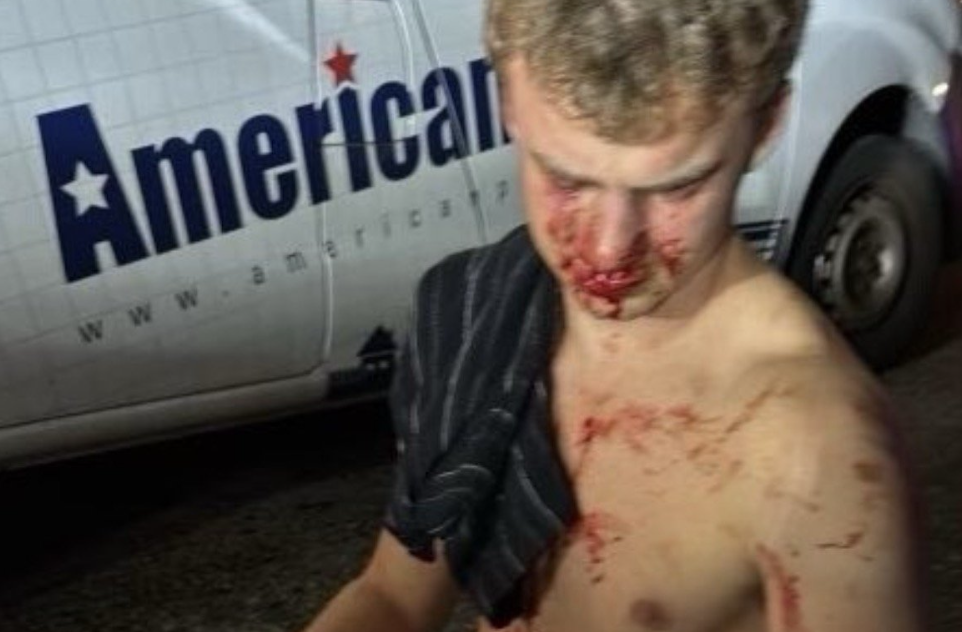Big Balls Speaks: A Brutal Night, A Bigger Question for America
- Brutal ambush on Washington streets exposed by a firsthand account
- Attack highlights consequences of soft-on-crime policies in cities
- Swift police response contrasted with progressive rhetoric
- Federal action promised to restore order and protect citizens
In an exclusive television appearance that has captured the nation’s attention, former DOGE employee Edward Coristine, known to the public by the moniker “Big Balls,” broke his silence on the brutal late-night ambush that left him bloodied and beaten on the streets of Washington, D.C. Appearing on Fox News’ Jesse Watters Primetime, Coristine provided a harrowing, firsthand account of the violence he endured, a story that the liberal media has largely downplayed or framed with apologetic language for the perpetrators. His testimony stands as a stark indictment of the failed, soft-on-crime policies that have festered in American cities, creating an environment where such brazen attacks are not only possible but are becoming increasingly common.
Detailing the events of that terrifying night, Coristine described the moment he realized he and his friend were in grave danger. “Yeah, I was just hanging out with a group of my friends late at night and at about 3 a.m. we were wrapping up, and I was walking one of my friends back to her car and as we’re walking to the car there’s a group of 10 guys right across the street,” he recounted. This simple act of walking a friend to her vehicle became life-or-death, and it strikes at the heart of what happens when leadership ignores rising urban crime.
The situation escalated with terrifying speed, showing the predatory nature of the mob that targeted them. “And as we get to the car and she begins to fumble for the keys, they start shouting at us, and really quickly I knew something was really off about the situation,” Coristine told Watters. Citizens rely on common-sense protections, but those protections erode when policies favor offenders over victims.
In a moment of clarity, Coristine focused on keeping his friend safe. “So she unlocks the car, I rush her into the driver’s seat, she’s able to close the door behind her and lock the doors and right as I turn around, they run up on me,” he stated. His selfless act shielded her from harm but exposed him to the mob’s violence, a painful example of ordinary bravery against societal decay.
What followed was a brutal and one-sided beating, a of the lawlessness that has been allowed to flourish. “They’re just a few feet away. And they slam me against the car. They start throwing a bunch of punches. I keep my hands up. just like, alright, I’m getting a lot of punches here,” Coristine described. That image of a lone man defending himself against a pack is a stark indictment of cities that have slashed consequences for criminals.
Miraculously, the ordeal ended not through community programs but because officers arrived quickly. “I’m just trying to protect my head the best way that I can. And luckily, the whole thing didn’t last too long. The police showed up pretty quickly,” he added. The swift law enforcement response underlines why support for police is not political theater but life-saving policy.
Reflecting on his injuries, Coristine showed resilient gratitude. “So I was very fortunate. I only came out with a broken nose and a concussion. It could have been a lot worse,” he said. No one should have to count themselves lucky for surviving a walk to a car in America.
President Donald Trump amplified Coristine’s story, posting a photo of his battered face and pushing the nation to confront urban violence head-on. The President has moved to federalize the District of Columbia to crack down on crime, signaling a clear commitment to restore order where local policies have failed. This is the kind of decisive leadership proponents say will protect citizens and reclaim our streets from lawlessness.


Leave a Comment